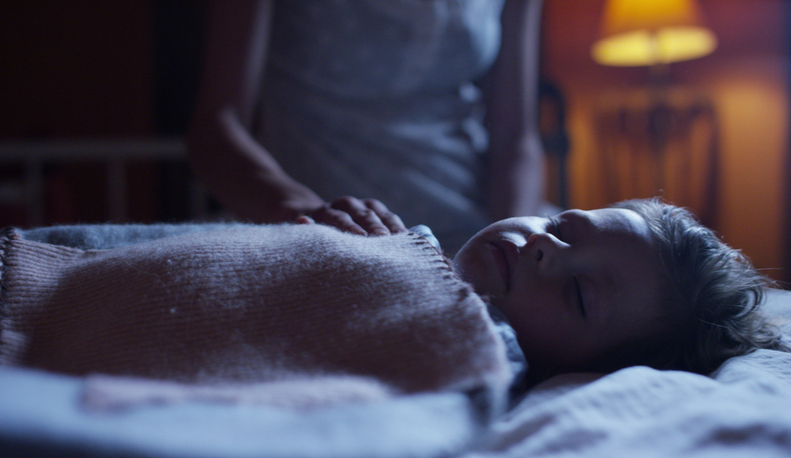Most students probably don’t love waking up to 6 am alarms. Early school start times aren’t just annoying—they can also impact students’ health, well-being and performance.
Let’s explore the most common school start times and how they might affect students.
What Are Common School Start Times?
According to 2015 Centers for Disease Control and Prevention (CDC) data, the average high school starts at 7:59 am, and the average middle school starts at 8:04 am. Average school start times varied from state to state, with schools in Louisiana starting nearly an hour earlier (7:40 am), on average, than schools in Alaska (8:33 am).

School start times haven’t changed much in recent years. The average public high school starts at 8 am and only 17% of high schools start at 8:30 am or later. Schools in cities, charter public schools and smaller schools tend to start slightly later than suburban and rural schools, traditional public schools and large schools.
Best School Start Times
Experts from the CDC, American Academy of Sleep Medicine (AASM), and American Academy of Pediatrics (AAP) agree that the ideal school start time is 8:30 am or later. According to the AASM and AAP, starting school no earlier than 8:30 am can help students get more sleep, which helps improve their health, performance and quality of life.
Effects of School Start Time and Sleep?
According to the AASM, children between the ages of 6 and 12 should get nine to 12 hours of sleep each day, while teenagers between the ages of 13 and 18 should aim for eight to 10 hours.
Early Start Time and Sleep
Puberty leads to a change in biological rhythms, with teenagers becoming tired later at night and needing to sleep later into the morning. Early school start times clash with this biological reality, leaving many students sleep-deprived. In fact, only 42% of middle schoolers and 27% of high schoolers get enough sleep.
Sleep deprivation can increase a student’s risk of:
- Accidents and injuries
- Mental health issues such as depression
- A sedentary lifestyle
- Becoming overweight or obese
- Poor academic performance
- Attention and learning problems
- Unhealthy behaviors like drinking, smoking and drug use.
Later Start Time and Sleep
Results from a 2022 study suggest that when students have later school start times, they tend to get more sleep. Participants also said that, when they got more sleep, they didn’t feel as grumpy or tired at school.
Impact of School Start Time and Performance
Now, let’s take a look at how academic performance correlates with school start times.
Early Start Time and School Performance
Starting school too early in the morning can deprive many students of the sleep they need. This can make it harder for students to learn and concentrate, which can put a toll on their academic performance.

Later Start Time and School Performance
Many studies suggest a correlation between school start time and academic performance. A2023 study in the Journal of Adolescence found students’ GPAs increased slightly when their school started 50-65 minutes later than usual. Other research has associated later school start times with better grades and national test scores.
Is a Later School Start Time Better?
Many experts argue that a later school start time is better for students. However, there are both advantages and disadvantages to keep in mind.
Advantages of a Later Start Time
There are many benefits to a later school start time, including better sleep schedules, reduced tardiness, higher grades and greater energy.
Better Sleep Schedules
When schools start early, many students have inconsistent sleep schedules. They tend to get insufficient sleep on school days and try to “make up for it” by sleeping longer on their days off.
One study found that students sleep 1.5 hours longer on weekend nights than on weeknights, on average.
Results from a 2021 study suggest that students with larger discrepancies between their weekend and weeknight sleep patterns may be more likely to display risky behaviors and symptoms of depression. They’re also less likely to be physically active during the week, and they may perform poorly in school.
Many students show more consistent sleep patterns when schools start later. For example, a review out of the University of Minnesota found that when school started at 7:25 am, students from one high school slept 7.5 hours per school night and 9.3 hours per weekend night. This gap narrowed quite a bit when their school start time switched to 8:55 am—with students enjoying 8.2 hours of sleep per school night and 9 hours of sleep on weekend nights.
Reduced Tardiness
In a survey described by the University of Minnesota, nearly one-third of students reported showing up late to class in the past two weeks because they overslept. While the research is not conclusive, many studies have found that students are more likely to arrive at school on time when classes start later in the morning.
Later school start times can also benefit attendance in general, especially for morning classes.
Higher Grades
As previously noted, students tend to get more sleep when school starts later. In fact, the review from the University of Minnesota suggested that when schools start at 8:30 am or later, more than 60% of students are able to get at least eight hours of sleep each night. This can have a significant effect on academic performance, including grades in core subjects and scores on national and state achievement tests.
Staying Awake in Class
Nobody likes to fall asleep in class, but anyone who has ever attended school on only a few hours of sleep can relate to the temptation. A 2014 survey described by the University of Minnesota found nearly one-third of students had fallen asleep in an afternoon class at some point in a two-week period. Understandably, this has been associated with poorer grades in school.

Delayed school start times allow many students to get the sleep they need at night, making it less likely that they will fall asleep in class.
Less Drowsiness
In one survey, 87% of students reported feeling tired or dragged out during school at least once in the previous two weeks. Since students sleep more when given later school start times, it should come as no surprise that they also tend to be less drowsy.
Disadvantages of a Later Start Time
Although there are many benefits to starting school later, there are some potential drawbacks to consider as well.
Scheduling conflicts
Sports schedules depend on the schedules of other schools, so some students may end up missing more time in afternoon classes to participate in athletic competitions.
Less Time After School
If high schools start and end later, teenagers may have less time to provide after school care for younger siblings. Some students may also have less time for after school jobs, which could pose a problem for some families.
Afternoon clubs, sports and enrichment activities could also be disrupted.
Transportation Issues
Changing school start times could conflict with some parents’ work schedules, making it harder to arrange transportation.
In addition, certain school districts serve multiple schools with the same buses, so some schools may need to start earlier to accommodate other schools starting later. This could lead to younger students spending more time waiting for their buses in the dark.
The Bottom Line
Most middle and high schools in the United States start between 7:30 am and 8:29 am. However, experts generally recommend school starting no earlier than 8:30 am. Starting school at 8:30 am or later could help students get more sleep, reduce the risk of accidents and injuries, improve performance in school and benefit both physical and mental health.
There are some possible drawbacks to starting school later, such as scheduling conflicts, less time after schoo and transportation issues. However, most experts argue that the pros of a later school start time outweigh the cons.
FAQs
How does school starting later affect students’ sleep?
When school starts later, students generally get more sleep and enjoy more consistent sleep schedules.
How does lack of sleep affect school students?
Lack of sleep can reduce performance in school, increase the risk of health issues and contribute to accidents and injuries.
How do school start times affect student learning?
Students tend to learn better when they get more sleep, which is one of the biggest benefits of starting school later.
Will students get more sleep if school starts later?
On average, students get more sleep when school starts later.
